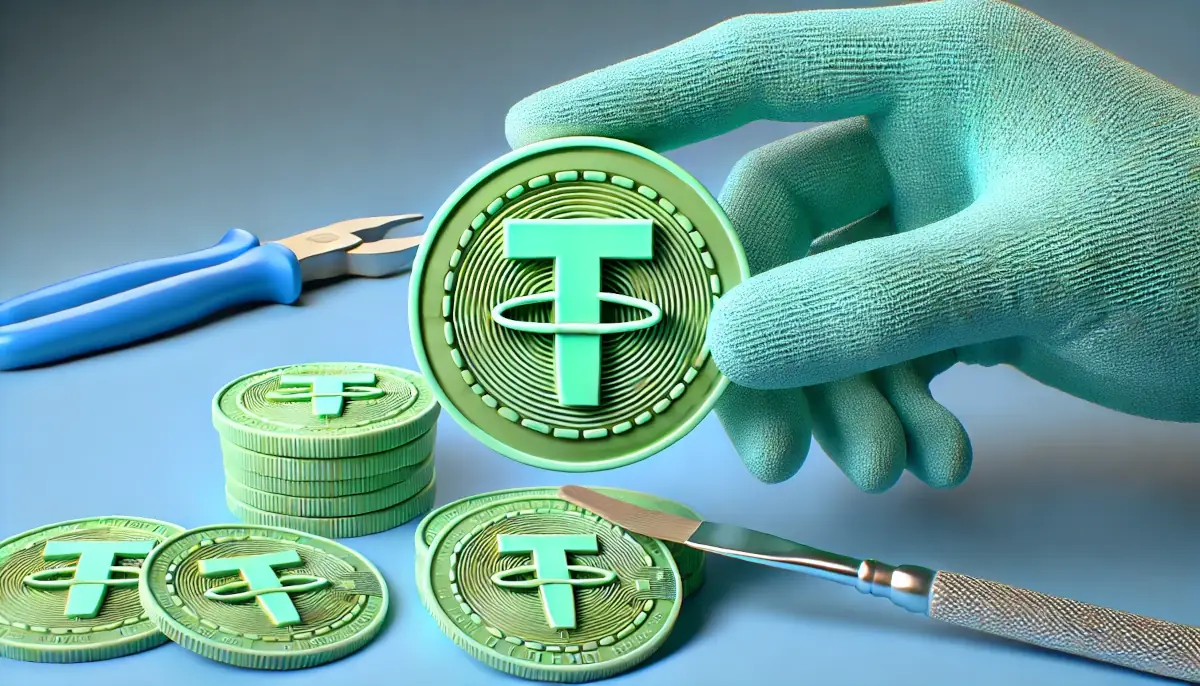Tether (USDT), one of the most widely used stablecoins in the cryptocurrency world, is once again facing serious allegations that could shake the very core of the industry. Criticism over Tether’s lack of transparency and unverified claims about its reserves have been circulating for years. But recent accusations from Justin Bons, founder of Cyber Capital, have turned up the heat, labeling Tether as one of the biggest scams in crypto history.
Bons accuses Tether of running a $118 billion operation without providing real evidence to back up its reserves. Despite Tether’s claims of having its assets securely backed, Bons points out that no legitimate audit has ever been released to prove this. He even went so far as to say that Tether’s alleged misconduct is more significant than the collapses of FTX and Bernie Madoff’s infamous Ponzi scheme. These are not small accusations, and they’ve made waves throughout the crypto community.
The Missing Audits and Doubts Over Reserves
One of the biggest red flags surrounding Tether is the absence of a proper, independent audit. Since 2015, the company has repeatedly promised to show proof of its reserves but has failed to deliver. In 2021, Tether was fined by the U.S. Commodity Futures Trading Commission (CFTC) for making false claims about the assets backing USDT. And yet, even after that penalty, no clear audit has emerged, leaving many investors and critics in the dark.
Tether has tried to calm the waters by releasing reports from BDO, an auditing firm. However, critics like Bons argue that these reports are not the same as a full audit. They raise more questions than answers, as they don’t provide the thorough breakdown that people are asking for. The company’s handling of audits also came into question when it fired its auditor back in 2018 for being too critical. Moves like this only add to the growing doubts over how Tether is really operating.
Legal Troubles and Allegations of Fraud
Tether is no stranger to legal issues either. Recently, Celsius Network filed a lawsuit accusing the stablecoin issuer of engaging in fraudulent Bitcoin transfers. While Tether’s CEO has dismissed the lawsuit as an attempt to extract money, it adds to the mounting concerns around the company. In addition to the lawsuit, Tether has been linked to other controversies, including associations with illegal activities like money laundering and scams involving fake investments, also known as “pig butchering.”
Tether’s growing market cap and influence also make some question the impact its potential collapse could have on the broader crypto market. Critics worry that the company is producing tokens without proper backing, and this could lead to a bank run, similar to what was seen with Terra Luna. The concerns over Tether’s connections with other questionable entities, like Bitfinex, further fuel speculation about what is really going on behind the scenes.
With Tether under increasing scrutiny, it’s hard to say what the future holds for the stablecoin. One thing is certain though – the lack of transparency and growing allegations are not doing it any favors. Whether these controversies will lead to real consequences for Tether remains to be seen, but the crypto world is definitely watching closely.




